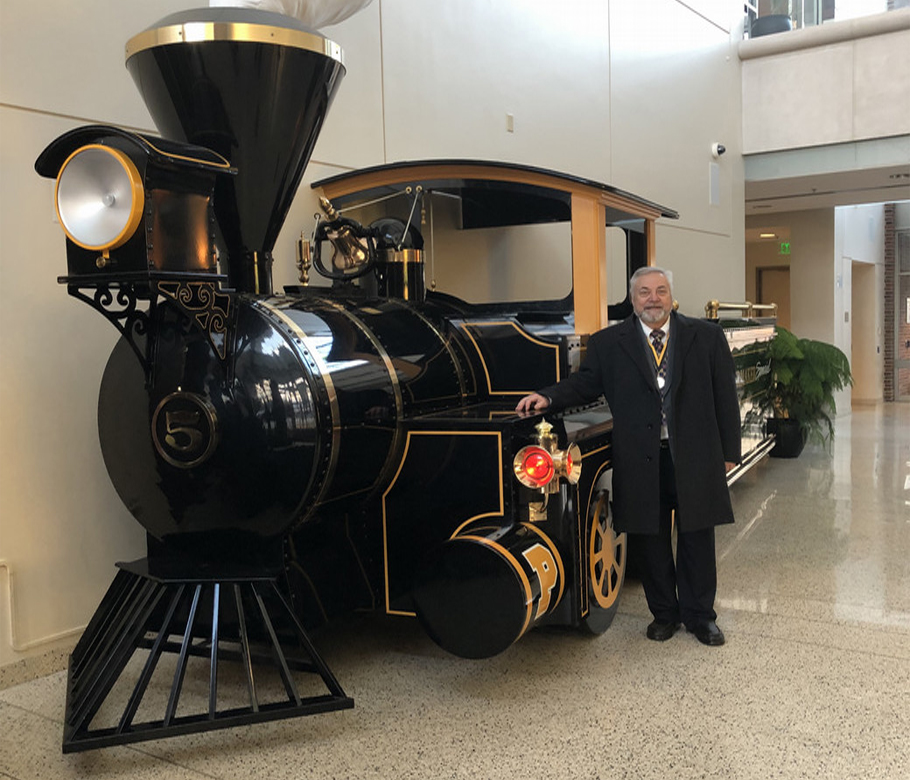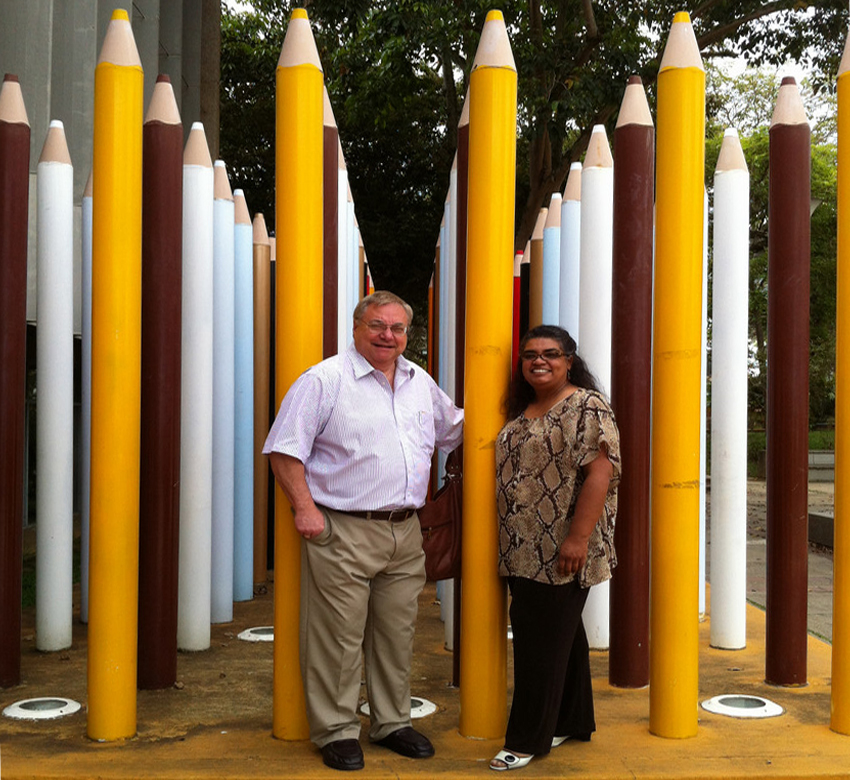
Written by: Maria M. Levy
Morris Levy, Morry, self-described as a Chicago kid, whom, after dropping out from college, went on to get his PhD from Yale University. “Not too bad”, he would say.
Morry’s life was shaped by a series of serendipitous events, the professor teaching a night class taken during his working time at the Chicago produce market, encouraged him to be brave and to make a real decision about the future, thus his return to complete his undergraduate degree in Biology. A field trip to the Indiana dunes marked his love for the study of evolution and of plants.
Years after working at Purdue in the department of Biological Sciences on the evolution of flower color patterns and morphology, and the evolution of pollinator vision, a random meeting to welcome a new faculty member working on a fungus with a “peculiar” pathogenic behavior, would start his second professional career in agriculture.
Serendipity again placed him in the same meeting with Dr. Lowell S. Hardin (RIP), one of the founding fathers of CIAT. Shortly after this meeting, in June of 1990, Morry would visit Colombia for the first time. The sugarcane fields, the passion for life exuded by his many hosts, the exciting nature of working on rice blast disease, the many adventures had in places like Villavicencio, Colombia, but, most importantly, the interactions and partnerships with his new colleagues full of passion and eager to share their knowledge, would mark the beginning of this new stage in his professional and personal life.
Morry’s association with Colombia started in the 90’s, expanded to CPI’s, and continued after his retirement until 2022. This participation included working actively in or fostering research partnership between peers, not only at CIAT but also in other institutions, and also acting as editor in numerous scientific papers and proposals. His fingerprints can be found in the thesis work of many students, but also in countless cafecitos shared in informal but fruitful conversations about research, evolution, agriculture, and about life. Morry was approachable and very attuned to the vital role of every person in the scientific community, principally the support staff, to the success of the research enterprise. His softball skills made for hours of fun, friendly rivalries and a few player injuries. These and many more qualities made him memorable and respected. Among these qualities, shyness was not included, however; his candor gave him one of the proudest moments in life, meeting President Uribe at Palacio de Nariño in Bogotá, and allowing himself to ask questions on behalf of his Colombian colleagues. This was Morry.

